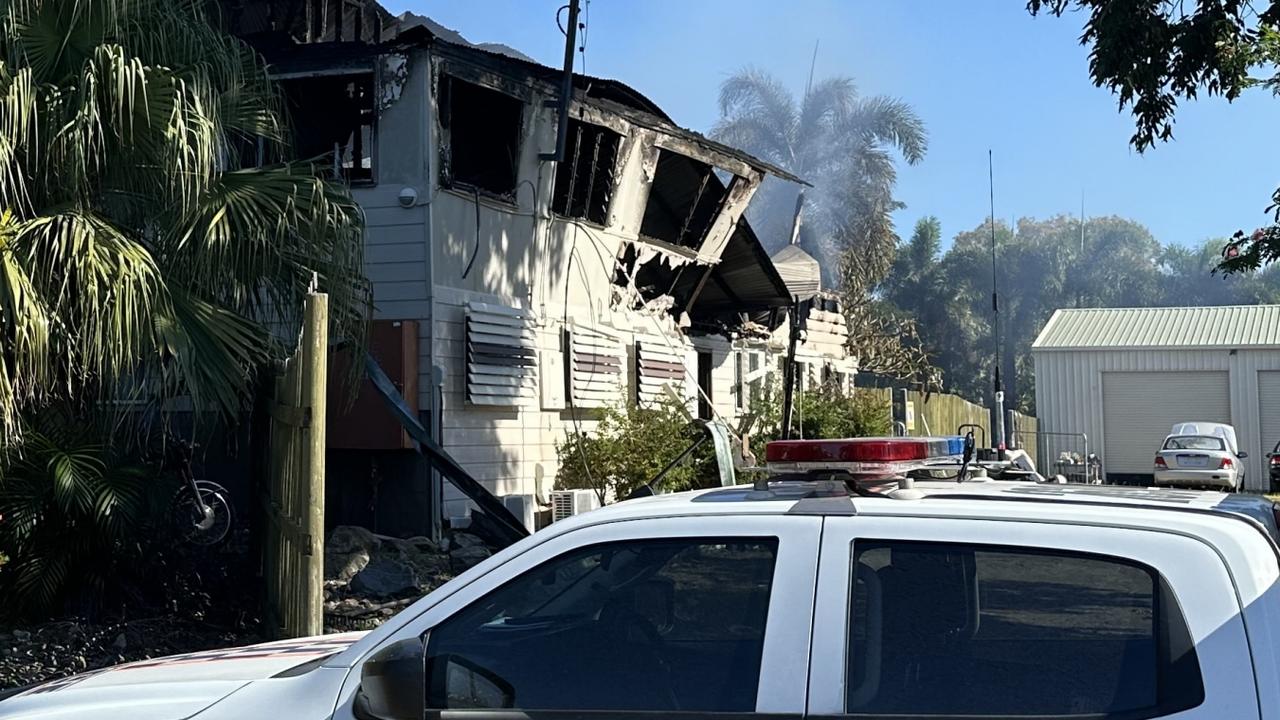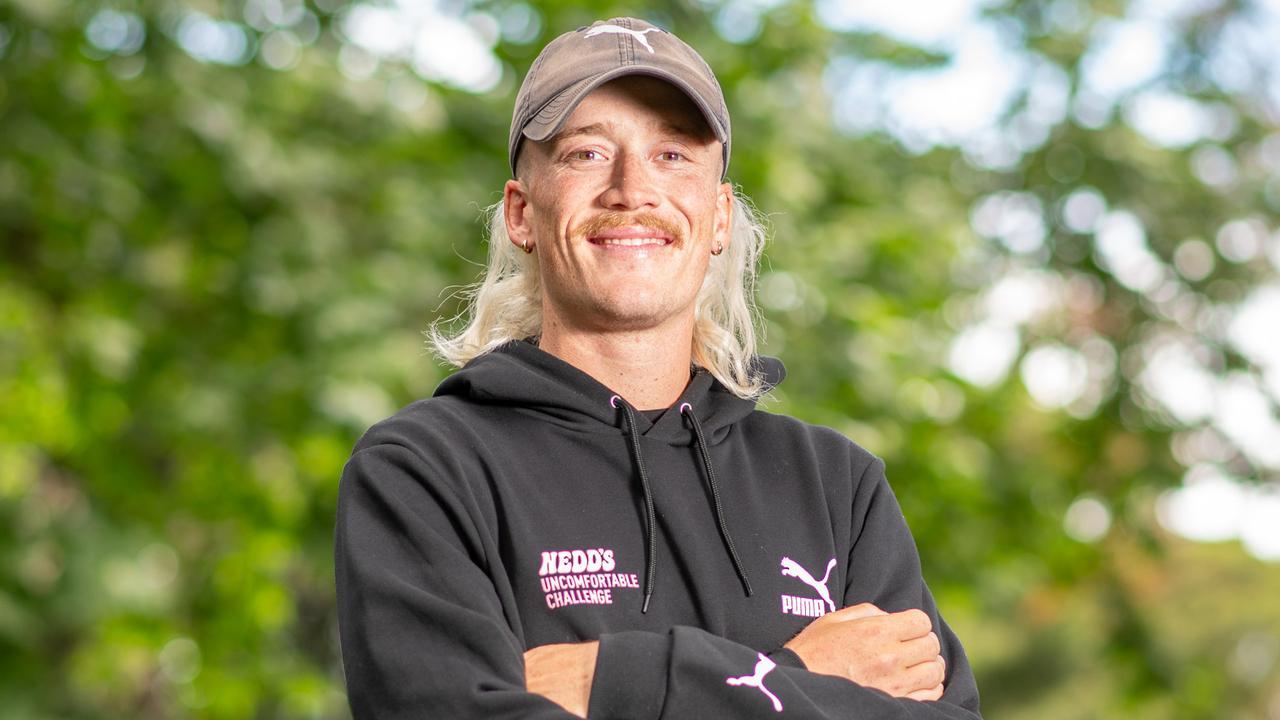Dr Deborah Simmons relives horror Anglo’s Grosvenor mine incident
A rural doctor who helped save the lives of five men after an horrific underground mine explosion has revealed how she was plagued by nightmares of ‘burning boys’ as she spiralled into post-traumatic stress disorder from her heroic efforts.

Mackay
Don't miss out on the headlines from Mackay. Followed categories will be added to My News.
A rural doctor who helped save the lives of five men after an horrific underground mine explosion has revealed how she was plagued by nightmares of “burning boys” as she spiralled into post-traumatic stress disorder from her heroic efforts.
Dr Deborah Simmons is candidly sharing her mental health journey in the hope it might help even one person fighting their own inner battle.
It was May 6, 2020 and the Proserpine medico had just finished some pre Covid planning at Moranbah Hospital when she got the call about a blast at Anglo’s Grosvenor mine seriously injuring five workers.
This was by no means her first trauma, but on every other occasion she “always had a team with me that I knew”.
“I knew how they worked and I knew what my resources were,” she said.
“In Moranbah, I was just visiting … and suddenly we were hit with what looked like a war zone to me with five men that were covered in soot and very badly burnt.
“And I was in an environment where there was staff that I didn’t know.
“So I then had to try and triage and run this process.
“And I felt as though those five men’s lives were solely in my hands and it was up to me to save them.”
It was this immense self imposed pressure that played on her mind afterwards.
‘I’m going to take your pain away’
There was about 15 minutes before the injured men arrived at the hospital – Dr Simmons spoke to the Moranbah team and said, “I don’t know you, I don’t what your skill set is”.
She asked them to form into groups of three so she could triage the workers among the groups, and then focus on the most seriously injured before making her way around to the others.
Memories of the day still evoke emotion as Dr Simmons described the chaotic scenes in the hospital.
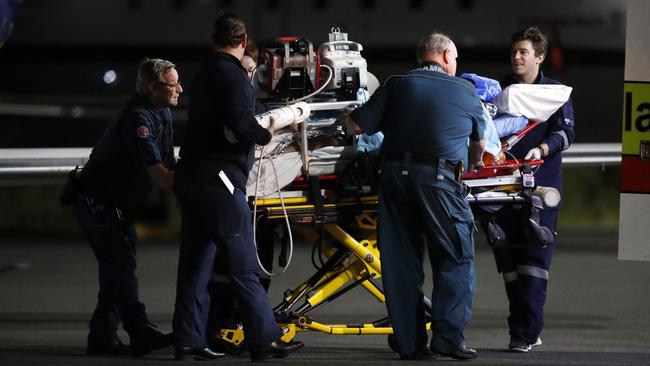
First one worker was brought in. “He was the sickest, I really thought that he was going to pass away in front of me,” she said.
Almost at the same time the second arrived. “And he looked exactly the same as the first young man, just covered in soot and very badly burnt.”
Then the third, and it was at this point Dr Simmons said she momentarily froze.
“I remember thinking at that point in time, I’m not going to be able to save all of these boys because it was just all happening so fast,” she said.
“And then I said to myself, Deb all you can do is your best.”
They were in a huge amount of pain, and so Dr Simmons comforted each injured man telling him, “I’m going to take your pain away now. I’ve got you.”
Any fear Dr Simmons had about the unknown were fast put to rest as the “incredible” Moranbah team worked tirelessly keeping each man alive as she worked her way around the room.
“Not one person could do this and I could never have done any of this if it hadn’t been for that magnificent team,” she said.
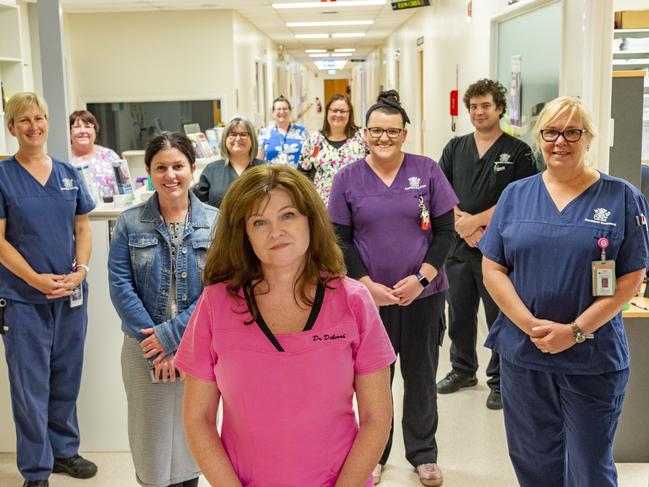
“If I’d known how well that team worked before the incident happened, I don’t know whether I would have actually ended up with post-traumatic stress disorder.
“It was the fear of those boys’ lives being in my hands.
“I didn’t know how the team was going to work, but they were incredible.”
The nursing staff and paramedics who stayed behind “had to hand ventilate those boys for two hours minimum before the retrieval teams arrived”.
“If it wasn’t for the team, it would have fallen apart,” she praised.
‘I’d wake up screaming’
When Dr Simmons recalled that afternoon more than four years ago, she said “there was a lot of white noise”.
Her first moment of relief came as the emergency doors opened when the initial retrieval team had arrived and she felt “I’ve now got this weight taken off my shoulders”.
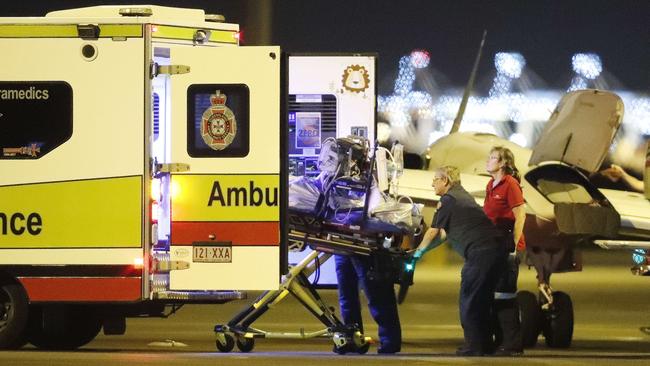
But following the incident things began to slowly unravel. Dr Simmons said any time she was asked to speak about what happened she couldn’t get through more than two sentences without crying.
“I thought this is just normal … having been through a major trauma,” she said.
“It’s normal that you’re going to feel emotions about it.
“I didn’t feel as though there was anything wrong.”
Then months later after she had returned to Proserpine Hospital she began having flashbacks to that afternoon.
“I’d walk along the corridor and I’d have flashbacks to what happened,” she said.
Again she thought it was normal and her brain just trying to “clear things out”.
“I’d have nightmares where I’d wake up screaming,” she said.
“I could remember bit and pieces of nightmares, but not all of it. But I knew it was all about burning boys.”
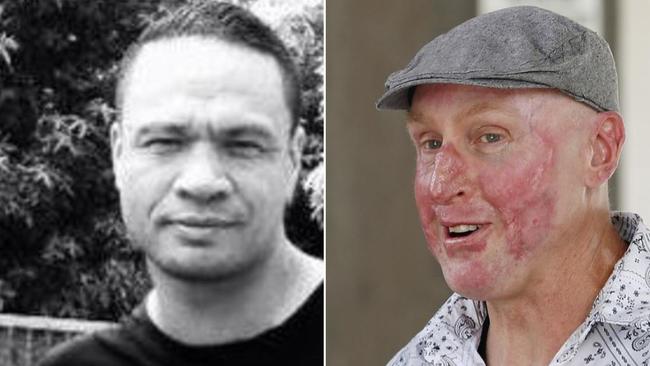
When she was at work and busy she said she felt fine, but at home she would have to work hard to block everything out.
Then while at work Dr Simmons had her first panic attack after a young man was brought in who reminded her of the first worker.
“But I tried to push it back,” she said, repeating to herself “you can deal with this”.
Unbeknown to Dr Simmons her mental health continued go downhill and in January 2021 she found herself wondering if she had done the right thing in saving their lives “because I’ve now put them through years of pain and agony for all the surgeries they have to go through”.
‘Be vulnerable enough to open up’
Gripped with these thoughts she rang her best friend and colleague who instantly knew something was wrong and from here Dr Simmons was booked into a private psychiatric clinic.
“I stayed in that unit for a whole month,” she said.
But when she first arrived she was “dead against it”.
“I thought, I’m a doctor. What’s going to happen to my career? I can’t have a mental illness, and so I stayed in my room,” she said.
“I would not go down to dinner. I would not get involved in any of the therapy sessions.”
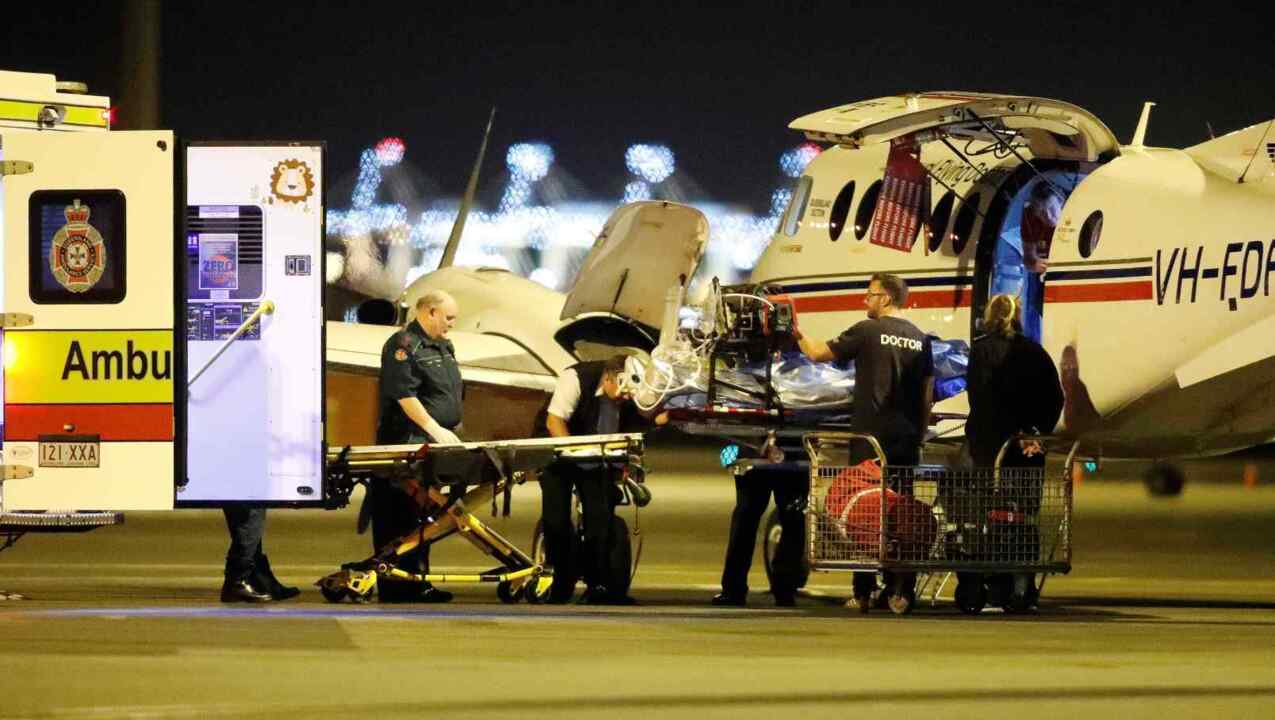
But after learning how long she would stay she pushed herself to get involved, telling herself, “you’re going to have to make the effort to get yourself better”.
It made her realise having a mental illness is no different than someone with diabetes.
“It’s another medical diagnosis that you just have to get through to get yourself back to work or back to your life,” she said.
“And that’s what made me embrace it.”
Dr Simmons said there was a huge misconception that people with a mental illness could not function properly in life.
“Having a mental illness is a chemical imbalance in the brain,” she said.
“We need to embrace the fact that things happen to us in our lives and that it may mean that we end up with a chemical imbalance in our brain and we need to be able to talk through these things.”
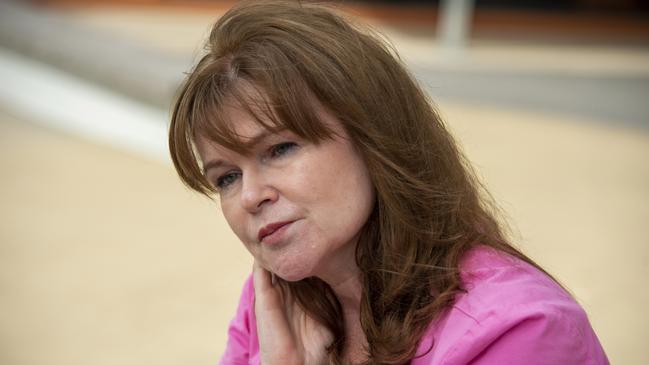
Dr Simmons said she believed some of the stigma linked to mental illness was because it was a hidden medical diagnosis.
“It’s only the person that’s involved with it that can feel it and can deal with that,” she said.
Her biggest message for everyone – those going through their own inner battles and others around them – was, have the ability to be vulnerable.
“Be vulnerable enough to open up to someone and say ‘I’m really not feeling the best’,” she said, adding those on the other side needed to be vulnerable enough to go up to someone and ask, ‘are you okay?’.
“Sometimes that’s all you need to do to open up that conversation.”
‘That experience has made me a better doctor’
After spending time at the facility Dr Simmons began her gradual return to work, but it wasn’t a smooth process.
“I still had nightmares,” she said, resulting in many sleepless nights and not feeling safe to be at work.
“So I would obviously call in sick.”
Dr Simmons said while her employers understood and were supportive, there was a breakdown in this information being filtered to her colleagues with some becoming frustrated at her taking multiple sick days if she was meant to be returning to work.
“And I completely understand that, but the way that I heard about that was through the grapevine,” she said.
“And again I had to open up that vulnerability conversation … and explain what as going on.”
Once she did that Dr Simmons said her transition back to work was fantastic.
Dr Simmons is very open about what she went through and how it impacted her life, because she believed education was the key in destigmatising mental health.
“We need to look for it in the work environment so that we can pick up on it early and get treatment,” Dr Simmons said.
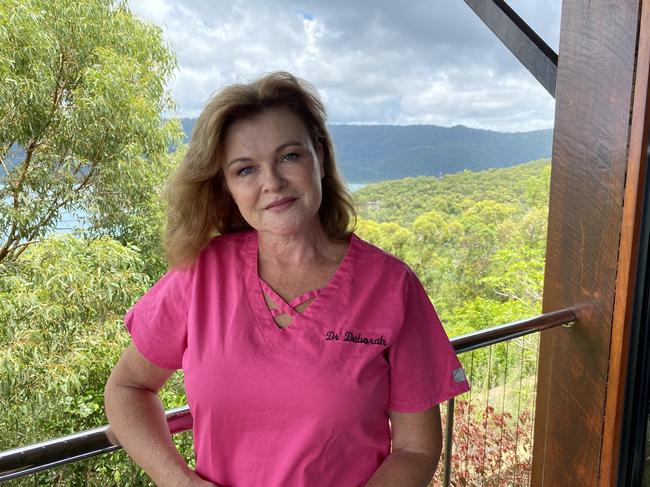
She now splits her time between Proserpine Hospital and private anaesthetic work in Rockhampton.
“I think going through that experience has made me a better doctor,” she said.
“I have a lot more empathy.”
And she still has an overwhelming love for her job – holding a patient’s hand when they are going through a difficult time or celebrating life-changing news.
“And the privilege to be able to do that with people is amazing, and it really is a privilege to be able to look after people,” she said.
Dr Simmons, who in 2022 was awarded an Order of Australia Medal for her outstanding service as a rural generalist, will be speaking about her journey at a number of breakfast forums for Safe Work Month in October.
She said being able to share her story to larger groups was a proactive and positive way to send the message mental health was “not this terrible thing” and it was okay to be vulnerable.
She also shared her story for a WorkCover video in the hopes it would help others.
“If it only helps one person, then that’s what that video is for,” she said.
EVENT INFO
The first event will be held in Rockhampton at the Frenchville Sports Club on October 2.
She will then speak in Cairns at the Pullman Cairns International on October 16.
Her final talk will be at the Work Well Conference in Brisbane on October 22.
For more information about these events visit here.
Dr Simmons is a senior consultant anaesthetist with the Australian New Zealand College of Anaesthetists and a rural generalist with the Australian College of Rural and Remote Medicine. She moved to the Whitsundays in 2014.




